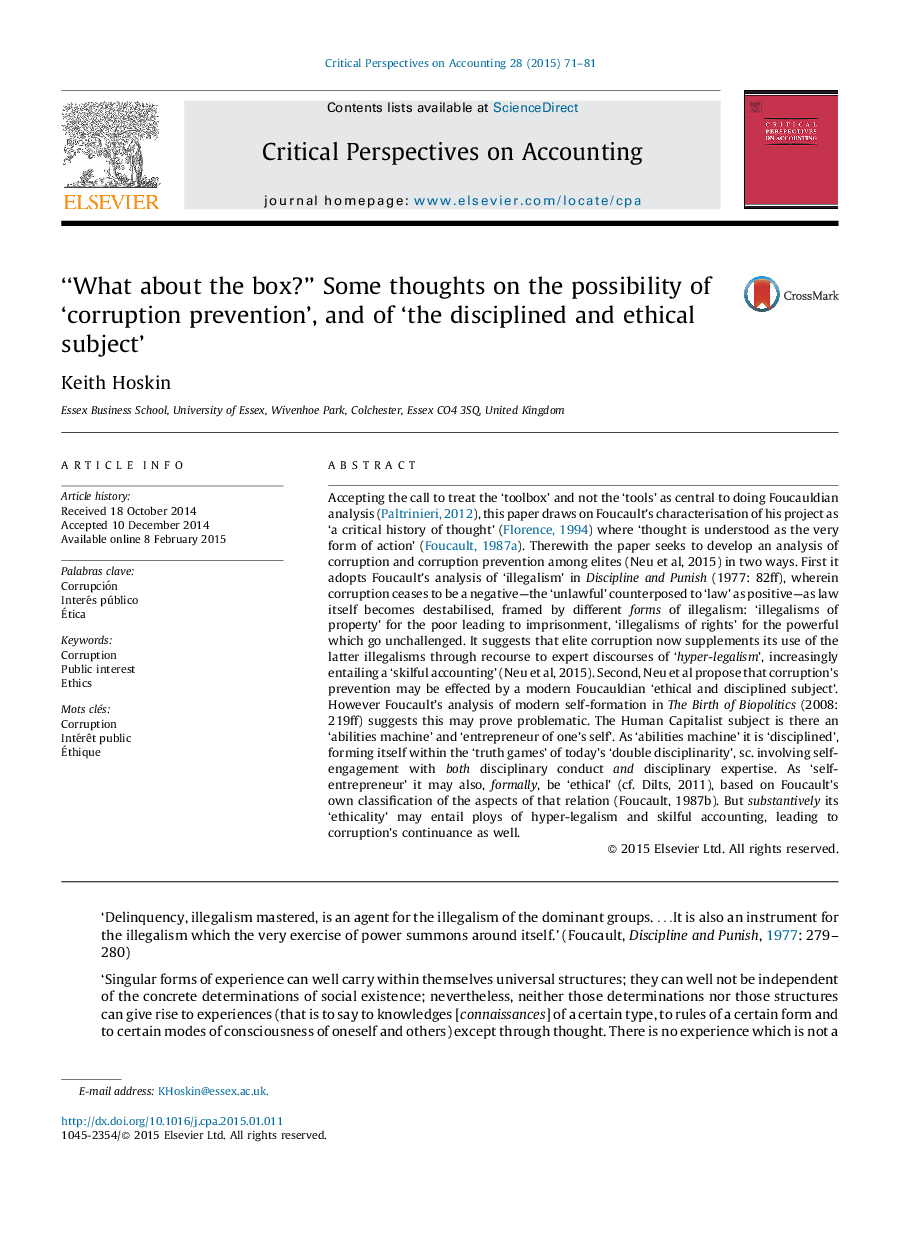ترجمه فارسی عنوان مقاله
چه چیزی در مورد جعبه؟ برخی از اندیشه ها در مورد احتمال پیشگیری از فساد، و یک جنبش انضباطی و اخلاقی؟
عنوان انگلیسی
“What about the box?” Some thoughts on the possibility of ‘corruption prevention’, and of ‘the disciplined and ethical subject’
| کد مقاله | سال انتشار | تعداد صفحات مقاله انگلیسی |
|---|---|---|
| 41449 | 2015 | 11 صفحه PDF |
منبع

Publisher : Elsevier - Science Direct (الزویر - ساینس دایرکت)
Journal : Critical Perspectives on Accounting, Volume 28, May 2015, Pages 71–81
ترجمه کلمات کلیدی
فساد، منافع عمومی، فساد اخلاقی، منافع عمومی، اخلاق فساد، منافع عمومی، اخلاق
کلمات کلیدی انگلیسی
Corruption; Intérêt public; ÉthiqueCorrupción; Interés público; ÉticaCorruption; Public interest; Ethics

